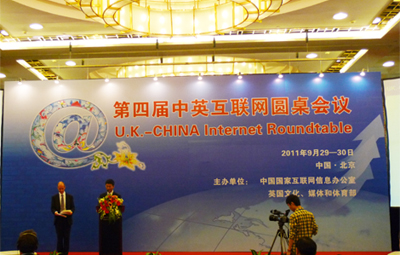Training key to attract, retain talent
Updated: 2011-09-30 09:17
By Stephen Rice (China Daily)
|
|||||||||
|
Zhang Chengliang / China Daily |
Strategy should meet requirements of an organization and fulfil needs of staff
There is little doubt that news from Europe and the US recently has cast a depressing economic pall over much of the world. Meanwhile, in China amazing growth continues, and in nearly every sector and across all disciplines companies struggle to find the right talent.
In a global survey of recruitment trends named Antal Global Snapshot 9, which took in more than 12,800 organizations in 47 countries, the current hiring rate in China was shown to be up from 66 percent last quarter to 70 percent. This is predicted to rise again in the coming three months, with 72 percent of businesses intending to take on more staff.
This means that in China, attracting talent and keeping it is becoming increasingly important for multinational companies, and to find the right way to achieve it will be one of the biggest challenges.
The talent market in China has changed greatly over the past 18 months. Money used to be the No 1 factor in attracting and keeping talent, but brand recognition and company reputation are now more important. A survey of "most desirable employers" was conducted by Antal in China in the first quarter of this year that took in 3,000 candidates who were professional staff with more than three years' work experience.
Thirty-two percent of respondents said company reputation and brand recognition were the most important factors for them in choosing a company to work for. Salary ranked third, 26 percent saying it was the most important thing for them.
Along with this change in candidate outlook is the growing importance of training as a means of staff development. Companies that can show candidates and current employees a clear path to promotion through training and meeting clear objectives have a greater chance of successfully attracting and retaining key people.
Training should be a part of a long-term strategy that meets the needs of the organization while also fulfilling the desires and requests of personnel. I have had more than five years' front-line training experience with many companies in different sectors. In that time I have seen the need for training ebb, as it did a few years ago when companies were trying to localize talent, even canceling many of their training programs, and I have seen it flow to where it is today - nursing a somewhat frenzied hunger.
Nowadays too many companies offer training off the cuff because of sudden threats that staff will leave if they are not supported with continual training. When such training is given, the company is playing catch-up in an already volatile candidate driven market.
Typically, senior management in most organizations and across all sectors have not shown full support for training programs, and some would even say there has been a lack of understanding of training needs within those organizations.
Companies are challenged with bringing together employees, often in different proximities and scheduling time away from business for them to attend training. This becomes particularly difficult to justify when it is not always easy to see a significant return on their investment, coupled with the fear that once an employee receives training they could potentially reenter the job market in search of higher pay.
While these fears are based in reality, the consequences of ignoring training as a part of organizational strategy could be serious. One solution may be to develop a culture of learning within the company from the newest employee to the most senior managers and executives.
In the current climate the need to attract and retain good people should help persuade reluctant management to acknowledge the importance of a continuing training program and to cultivate a culture of learning.
According to the China Training Industry Report, published in the China 2011 Training Services Directory, the greatest training needs in China are leadership development, program/curriculum customization, qualified training professionals, and training associations.
While understanding these needs is a good start for training providers, they must also understand that cultural differences must be tackled. Western-style leadership development training as well as other curriculum may need to be tailored to the local environment as well as first considering how it fits within a company's culture. A one-size-fits-all philosophy will not work well, even in a multinational company, and training customization and localization is essential.
The culture clash is another challenge that faces human resources departments of multinational companies when they develop training strategies in China. I experienced this problem first hand when I was asked to deliver sales training at Antal, China, for internal staff. Being a UK company with a vast amount of quality training and development material, I was given the task of teaching proven sales techniques in our new employee induction.
When I talked with some experienced consultants they told me that some of the techniques were very British and did not work the same way in China. "We would never say that here," a trusted colleague says. That gave me the opportunity to work with our most senior consultants and write strong sales material.
In addition, the training industry here is developing quickly. This brings more options and convenience for in-house companies on their human resources strategy. It's good to have them, but comes with another problem: How to select a credible partner. Some training companies are less selective and hire tourists - those without work visas or training experience to be part-time trainers, thus companies looking for providers often complain about a lack of qualified professionals.
Trainers must be more than just foreign and charming and should have experience in subject matter and should be able to deliver it effectively. The other standard that could help human resources to define partners is the reputation of the training provider. Experienced training companies with the relevant license and training divisions linked to well-known human resources services and that have operated in China for many years will be a safe choice.
Challenges can always generate opportunities. In order to grab the opportunities, my suggestion as a trainer is that multinational companies should consider providing employees an important brand of "job stability". A systematic training program benefits the process in talent attraction and retention, loyalty of employees, strong management, and the positive images of companies.
The author is China Training Manager of Antal International, a HR consulting company. The opinions expressed in the article do not necessarily reflect those of China Daily.











